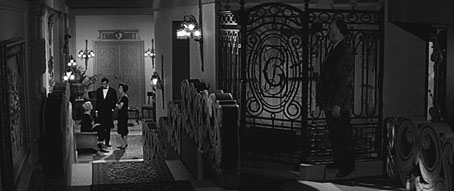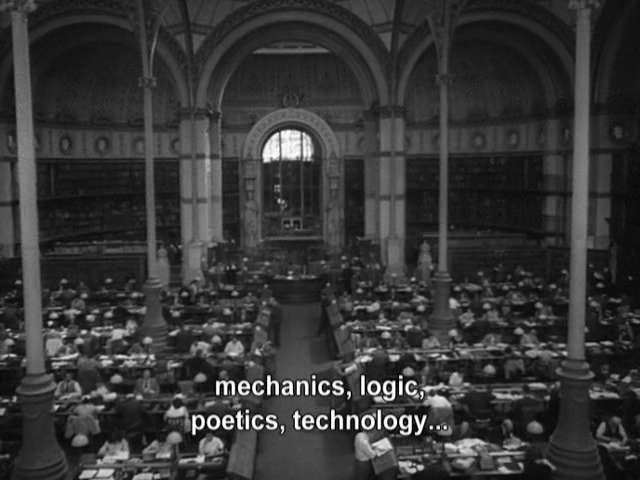Thanks Mark F for this interesting topic!
I have an admiration for Alain Resnais even if I don't like all his films. His last films are like filmed theater. I like him for a few reasons : I like the way he edited his films. He was a great editor like Eisenstein. The second reason : my best friend was an extra on the filming of
My American Uncle, he told me he was a very humble and shy guy (not "conceited" at all



). Resnais gave to my friend a roll of film of
My American Uncle. Alain Resnais was often considered as an intellectual but his dream was to make a film on Harry Dickson or on Mandrake the Magician. He has even talked to Stan Lee to make an adaptation of...
Spiderman. Yeah, it sounds crazy

Mark F, have you seen the short movie
Toute la Mémoire du monde?
This film was an order from the National Library of France but Resnais made a film about the culture and how the BnF "records" the memory of our civilization. It's a suffocating film which prefigures
N&F and
The Last Year At Marienbad.
I like
Hiroshima Mon Amour very much. I studied the film when I was in high school, then I know the genesis very well but Mark F explained everything very well. By the way, the screenwriter Marguerite Duras was a famous French writer and this is why the text of the film has a literary style.
Hiroshima Mon Amour is a beautiful film about the memory of History. The film combines the collective History (IIWW, Hiroshima) and the individual history (the French woman, the Japanese man).
Night and Fog is also about the memory of History and how to show concentration/extermination camps on the screen. Films about concentration/extermination camps always stir controversy, even
The Schindler's List (Godard said about Spielberg he was the first Jewish to reconstruct Auschwitz

)
It's interesting you told the reactions of your students. In France,
Night and Fog is always shown in the high schools. This is my philosophy teacher who has showed us this film because we had courses about Hannah Arendt (
The Origins Of Totalitarianism and
Eichmann In Jerusalem).
I have to admit I never cried by watching
Night and Fog but I think the awareness is more through the analysis than through tears.
I liked
The Last Year At Marienbad when I've seen it for the first time but I was only 16 or 17. Maybe if I see it again, I wouldn't like it anymore. I liked
My American Uncle.
Coeurs : meh!
Wild Grass : meh, meh! And the last dialog is so... weird. And I've been disappointed by
Providence.
(Sorry for the Frenglish

)







